- Home
- Jane Godman
One For Sorrow (The Cunning Prophet Series Book 1) Page 2
One For Sorrow (The Cunning Prophet Series Book 1) Read online
Page 2
The woman waiting on the doorstep was big in every sense of the word. Tall, broad shouldered and heavy-set with wildly curling hair, she had hands like shovels and feet thrust into a pair of men’s slippers. She lumbered forward as the car halted. Giving Harry a look that spoke volumes about their history and her views on the local police force, she did not deign to speak to him. Instead, she went straight to the passenger side of the car.
“You must be Dora. I’m Cass Lawson. We emailed about the cottage.”
Harry’s passenger uncoiled herself from the seat and clambered out, crunching greasy gravel under her biker boots. She stretched her arms above her head in an unselfconscious movement while studying the pub and the outlying cottages. The Magpie Inn was a low, white-painted building with a thatched roof and lots of tiny, diamond-paned windows that caught the sun and threw multi-coloured patterns back at them. There were two picture-postcard cottages in the grounds, both set on a slight rise overlooking a bustling stream. Beyond them, a jumble of outbuildings and stables led the eye upward to rolling hills.
Cass, jangling keys from a heavy bunch, hoisted the backpack from the boot Harry had just opened. “Bloody hell, what’ve you got in here, Dora, love? It weighs a ton.”
“Oh, just my crystal ball and a few other fortune-telling accoutrements.” She opened her eyes very wide at Harry. “That’s not a problem is it, detective? I didn’t think the Manx Police Department would mind me earning a bit on the side while I’m here. I can set my tent up in a corner of the car-park…you won’t even know I’m there.”
Harry let Cass go on ahead to the cottage. “You can stop giving me all this Incredible Electra bullshit now, Dora Balniel. You heard me talking on my phone about the tea leaves on the quayside, didn’t you?”
“Of course I did.” Dora regarded him with a look of contempt that was already becoming far too familiar. “You were standing a foot away from me and chortling like a schoolboy at your own wit. If you crossed my palm with silver every time some knob made that sort of comment about me, detective, I’d be a wealthy fortune-telling fraud by now. So, can I take it you don’t want your palm read?”
In spite of himself, Harry felt a smile tug at his lips. “Piss off…Dora.” That was it. That was all he had. He’d dredged as deep as he could and ‘piss off’ was the most witty come back he could find.
“Are police officers allowed to say that to members of the public? What happened to customer care and all that shite?” Unexpectedly, she returned the smile. And it hit Harry like a punch in the gut. His first impression had been right. And wrong. She wasn’t pretty. Dora Balniel was gorgeous.
* * * *
Dora tugged off her boots and padded into the tiny kitchen. Even through the heavy wool of her socks, the slate floor tiles chilled her feet. She flicked on the kettle and rummaged through the box of essentials that Cass had left on the counter. The view from the window was bleak, the earlier sun gone now, hidden by clouds that were the same blue-grey as the roof tiles. The cottage was tiny and furnished comfortably. Cass’s website hadn’t lied—it was cosy and traditional. Nothing like a holiday let. Nevertheless, an image of Queenie’s comfortable flat—my flat now—on the second floor of a tall Georgian property off Dublin’s bustling Baggott Street came into her mind. What are you doing here, Dora?
Cass had shown her round. “The electrics are ancient, so you might find the fuses go and you end up in the dark. There’s a torch in the kitchen.” She’d shown Dora the fuse box. “And spare fuse wire and candles. If you can’t fix it yourself, come down to the pub and Stevie will do it for you.” Watching Dora out of the corner of her eye, she added, “Stevie’s my lad, my oldest boy. He’s having a tough time at the minute, but he’s a good son to me. Wouldn’t hurt a fly. Never mind what some people say. We do a full breakfast in the bar and pub food if you don’t fancy cooking.” The abrupt switch from protective mother to brisk advertisement was hard to follow, and she was gone before Dora had fully adjusted.
Dora’s phone buzzed insistently and she removed it from her pocket, glanced at it and then replaced it. It was Eamon Archer again. Harry’s comment about Archer still burned.
“No-one calls my shots, detective,” she muttered. She poured boiling water onto instant coffee, grimacing at the bitter smell. Grabbing up the mug, she carried it back into the lounge. Her laptop and the book were both in her backpack and she drew them out, setting them side by side on the pine coffee table.
“Rules.”
The word was clear, as if spoken by someone in the room with her. By someone next to her. Dora waited patiently to hear more. Nothing.
The good-looking, but crumpled and slightly world-weary, cop who had pissed her off so royally at the ferry terminal had said he’d be back in the morning.
“So how do you want to do this?” he’d asked.
“I don’t,” Dora had replied promptly. Surely he must have got that message by now?
“I mean do you want to meet me at the station each day? Work there?”
“No.” She shook her head. “In my experience, although police officers spend half their lives complaining about journalists, they have a surprisingly cuddly relationship with them. One whiff of me and the press will be all over your station like a porn star on a dildo.”
“Nice image.”
“You come here,” she said. There had been a little flash of something in his eyes that intrigued her. They were nice eyes, she’d already noticed. Warm and brown, like melting toffee. Just for a minute, she thought he might be about to protest at being ordered around. She waited with interest. Then the shutters came down again and his expression returned to neutral. “Tomorrow you can take me to where they were found.”
“They weren’t killed where they were found.” The nice eyes were weary. But then, Dora reasoned, five unsolved murders would probably do that to you.
“Far be it from me to point out the obvious to a sleuth of your calibre, Sherlock, but where they were found is probably still significant.”
“I wish I’d thought of that. I can see now why Archer was so keen to bring you over to help us out.”
He’d turned away then and driven off without a backward glance. Great. Politics with a dash of resentment and a blob of sarcasm. And murdered teenagers as well. Throw in the cheap coffee and this had all the elements of a fun trip. Dora massaged away the headache that was trying to form between her eyes. Opening her laptop, she went to the folder into which she’d thrown any information she could find about the murders.
“Five girls, all under the age of eighteen,” Eamon Archer had said, when he met her in an upmarket Dublin wine bar. “You must be able to feel something. I don’t know…invoke something?”
That was what people didn’t understand. They had an image of psychics they gleaned from films and books. They pictured incantations and trances and the summoning of spirit guides. Exactly the sort of thing that Queenie had made into a nice little side-line as Dora was growing up. Queenie called it their ‘gift’. As far as Dora was concerned, it was anything but. A gift implied something wrapped up in bright tissue paper with a bow on top. What sort of gift was it that, without warning—without bells and whistles and fried onion smells and weird little girl spirit guides—catapulted you into the body of a murder victim just at the point when the knife was plunged into their flesh? And, for Dora, it was the gift that just kept giving.
As a child, she accepted it. When she was five she had knelt up on the bus seat to look at the woman behind her and told her solemnly, “The cancer’s back, love, you’ll be gone by Easter.” Hurrying her off at the next stop, the woman’s wails following them, Queenie had tried patiently to explain that not everyone knew what was going to happen in the future. It might be best to keep it to herself. Dora had listened to these strictures placidly. A few months later she had needed clarity about the rules. It was at a family get-together. In the middle of dinner, during a lull in the conversation, she had turned to Queenie. In her high, carryin
g, almost-six-year-old voice, she had asked, “Queen? Does it mean I can’t tell Uncle Paddy I can see his head caved in and blood running down his face?” It had put something of a dampener on the party. Two weeks later, Uncle Paddy had staggered into the road after one too many pints of Guinness. He had been killed outright when he was hit by an oncoming taxi.
Throughout her teenage years she fought it. At the age of fourteen she watched a documentary about Native Americans. The narrator said they didn’t cut their hair in case it interfered with their psychic tracking abilities. That was the day Dora took the scissors to her own waist-length strawberry-blonde locks, then shaved her head. Queenie didn’t speak to her for a week. Dora became obsessive in her research. When she read that a vegan diet enhanced clairvoyance, she stopped eating fruit and vegetables. For six months she lived almost entirely on red meat, in spite of the fact that it made her feel sick all the time. Queenie thought she was bulimic and took her to the doctor for advice. An on-line site recommended that would-be psychics should avoid alcohol. Dora promptly drank two thirds of a bottle of vodka. Queenie held her hand while they pumped her stomach and, when she came round, held a mirror up to her face. Dora looked at the bloated, spotty, pasty-faced stranger who stared back at her and burst into tears.
“Are you trying to kill yourself, is that it?” Queenie demanded.
“I want to make it go away,” she sniffed.
“Well it won’t. It’s who you are.” And in that bland hospital room, with the mingled smells of vodka and vomit, Dora sobbed on her grandmother’s shoulder until she thought her heart would break.
She was twenty-one when she finally knew she couldn’t ignore it. It was a bright Saturday morning in the summer break, and she had taken Queenie shopping. By that time, her grandmother was confined to a wheelchair. Dora was endlessly glad that she had chosen to undertake her doctorate in Dublin instead of continuing her studies at Oxford as her professors had wanted. They’d been sitting drinking coffee and watching the world go by down near the River Liffey when it happened.
One minute, Queenie was debating whether to go back and get a blouse she’d seen—“I didn’t really like the colour, but it was half price”—the next, Dora was curled up in a ball with her hands over her face. She was in a filthy attic with only a urine-soaked mattress on the floor. The man who was systematically punching and kicking her was twice her size. She was fourteen and pregnant. He was her pimp. Just before his steel-tipped toe-cap dealt the final blow—the one that split her sternum in two, piercing her heart and lungs with shards of bone—Dora forced herself to look into his eyes and summon up his name. Queenie held her hand when they sat in the police station and she gave her statement to a blank-faced police officer.
The memory played now on a loop in the recesses of her mind. In the intervening years, there had been other murders, other memories. The pain she felt, sickeningly bright at the time, faded swiftly like a half-healed bruise. Ignoring the flashbacks now, because if she didn’t they would claim her sanity, Dora lined up the images of the five girls on her computer screen. If this murderer had a type it wasn’t immediately obvious. The only obvious thing they had in common was their youth.
Maisie Archer, Eamon’s niece and the first girl killed, was fair and dainty. A dimple peeped at the corner of her mouth as she smiled confidently for the school photographer. Girl number two remained anonymous, her picture a sad facial reconstruction made from a C.T. scan of her skull. If the model was accurate, she was the opposite of Maisie, with harsh features and a broad brow. The third girl, Amy Hardy, was a freckle-faced venture scout whose frizz of red hair escaped from under her cap. Ferne Abela was stunning, a dark haired, honey-skinned beauty whose Spanish heritage showed in her sultry gaze. Finally, sad, chubby Kelly Duckers had been killed fifteen days ago. In the photograph her eyes were almost hidden behind thick prescription lenses. A wispy, light brown fringe parted over her pimply forehead, and her pug nose shone with teenage grease.
The police had already done this. The best profilers from Scotland Yard had been seconded in to scan these young faces, looking for a clue to what it was that had drawn this man to them. So why was Dora here, on Eamon’s island—because that was how she thought of it—doing it all over again? She felt no psychic pull to these girls. No connection to the way they died.
You are here because these five girls need you to try, she told herself. Because a man who is grieving asked you to come. And—without taking her eyes from the laptop’s screen, she rested her hand on the book’s cover—because of this.
Chapter Two
The scrubby, green-brown grass resisted their footsteps, springing back as they made their way almost to the edge of the cliffs known as Spanish Point. Dwarf gorse mingled deep gold with the purple of the heath and the fainter hues of the bracken, infusing the thin air with fresh fragrances. In the near distance, the sullen expanse of the Irish Sea was cold in the weak morning sunlight, but overhead, patches of bright blue peeped between the clouds. It was the bleakness that got to Harry every time. Although Maisie Archer had been killed elsewhere, it was the image of that bright, bubbly teen ending up in this lonely, end-of-the-world place that sickened him.
Dora stood slightly apart from him, in the centre of the circle, her hands deep in the pockets of her leather jacket. Although there was no breeze, her shoulders were hunched as though against some imaginary storm. The tallest of the stones was less than four feet high but, from where he stood, she looked very small in comparison. Only the occasional screech of a distant chough, or the drone of an industrious bee, interrupted the solemnity pervading the moorland. Meayll Circle attracted ramblers and those with an interest in ancient monuments, but Harry had counted on an early start reducing the chance of interruption. So far, his instinct had served him well.
He had been pleased to observe that Dora was more covered up when he had called at The Magpie, just as sluggish sunlight broke through the dawn gloom. Her tight-fitting black jeans were tucked into the heavy biker boots of the day before and she wore an over-sized cable-knit jumper that came almost to her knees. At least he wouldn’t have to spend the whole day averting his eyes. She had waved him into the tiny lounge, holding up toast and coffee in greeting. He shook his head in reply. Mornings were not his best time. Dora, on the other hand, looked alarmingly good. She looked even better now that the walk up the steep hillside had tinged her cheeks with colour.
“So why does he choose these places to leave their bodies?” She turned to look at him. As always, Harry found that dark gaze disconcertingly direct. Could she actually be reading his mind? But he didn’t believe in all that crap. Did he? “When you got arsey with me yesterday for mentioning it, I got the impression you had a theory.”
“All of the girls have been found at the site of a different stone circle. All of them are ancient burial grounds.”
“So the link is Druidism?”
He smiled. “You’ve been doing your homework.”
“Come on. On this island—” she swept a hand out in front of her to encompass the point where the land met the sea, “—on any of the British Isles, you can spit over your shoulder and hit a place of Celtic or Druid legend. Stone circles? Neolithic burial sites? Ten a penny.”
She regarded him with a speculative look in her eye, obviously wanting to say more.
“Go on,” he invited.
“I don’t want my head bitten off.”
“I thought that was your speciality.” Her eyes flashed and Harry held up a hand in a gesture of surrender. “Look, I’ve got five dead girls, no real leads and your friend, Eamon Archer, breathing down my neck. You’re here to give me the benefit of your insights, so fire away.”
“It’s not anything psychic. It’s just that he’s very confident, isn’t he? And he must be bloody fit with it.” When he didn’t answer, she continued. “Physically fit, I mean. It’s a fair old walk from the road, and it is hellish steep. He’d have been carrying her body and there’s nowhere to hide i
f he met someone. He must be pretty sure of himself. So he’s probably done this before. I just wondered if you’d checked other stone circles to see if there had been any similar murders. Maybe in Scotland or Wales? Even Stonehenge?” His face answered her. “You’ve already done it.”
Harry nodded. “Nothing. The thing about Druidism is that the modern interpretation is probably very different to the historical reality. I spoke to an expert at Oxford University. He told me there are no recorded sources that came from the Druids themselves. They didn’t write their own history down. So no-one really knows which sites had any actual religious significance for the Druids. It may be that we have come to believe they do because of stories that came about many centuries after they were last used. Some of the places he has chosen to leave the bodies do seem to indicate a link to Druidism, but with others those links are tenuous at best. Nor do we know if our murderer is selecting places because he believes himself to be a modern-day Druid, or because they have some other, more personal, connection for him. Did he come here on family picnics as a child? Was he rejected by his first love at a stone circle? Did he have a fascination with Stonehenge as a child?” Harry recited the questions he and his team, including the profilers from the mainland, had been over and over in the clinical surroundings of the investigation room. Yet here, standing on the very edge of an island, surrounded by these pale stone symbols of a lost civilisation, it was impossible to believe there wasn’t a spiritual meaning behind the murderer’s choice of this place.
“What does the name Meayll Circle mean?”
“Meayll means Mull, as in Mull of Kintyre. A mull is just a rounded summit of a hill. So the name is as boring as ‘the circle on the hill’. There are other Celtic names for this particular circle, and, in Manx Gaelic it is known as Lag-ny-Boirey, the ‘hollow of botheration’ or ‘hollow of trouble’. With hindsight, I wonder if he was sending us a message in this, his first choice of location. He was warning us about the trouble he was going to cause us in the future.”

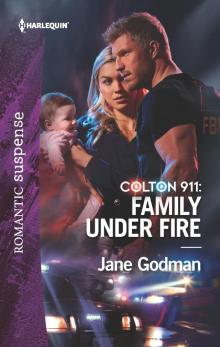 Family Under Fire
Family Under Fire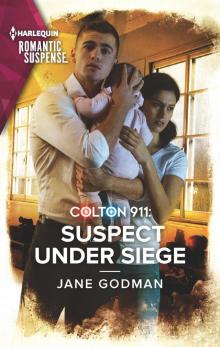 Colton 911--Suspect Under Siege
Colton 911--Suspect Under Siege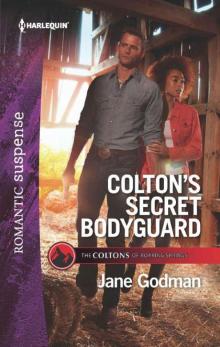 Colton's Secret Bodyguard (The Coltons 0f Roaring Springs Book 4)
Colton's Secret Bodyguard (The Coltons 0f Roaring Springs Book 4)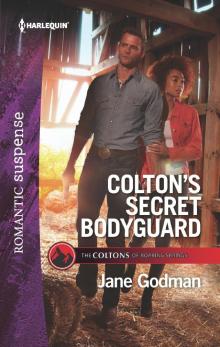 Colton's Secret Bodyguard
Colton's Secret Bodyguard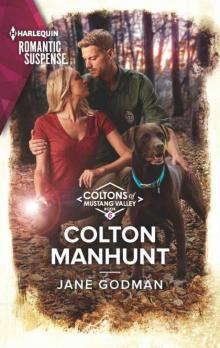 Colton Manhunt (The Coltons 0f Mustang Valley Book 6)
Colton Manhunt (The Coltons 0f Mustang Valley Book 6)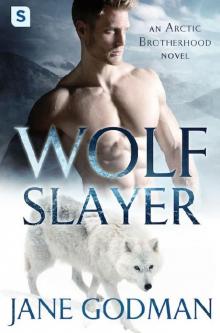 Wolf Slayer
Wolf Slayer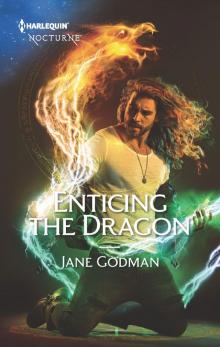 Enticing the Dragon
Enticing the Dragon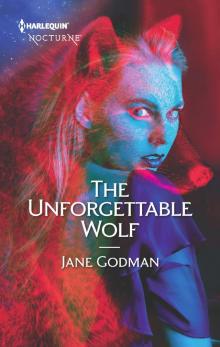 The Unforgettable Wolf
The Unforgettable Wolf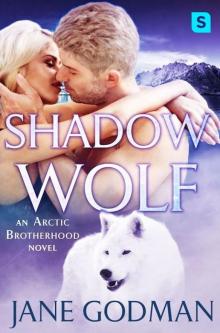 Shadow Wolf: A Shifter Romance (Arctic Brotherhood, Book 2)
Shadow Wolf: A Shifter Romance (Arctic Brotherhood, Book 2) Harlequin E Shivers Box Set Volume 3: Valley of NightmaresHis to PossessThe Girl in BlueThe Ghosts of Cragera Bay
Harlequin E Shivers Box Set Volume 3: Valley of NightmaresHis to PossessThe Girl in BlueThe Ghosts of Cragera Bay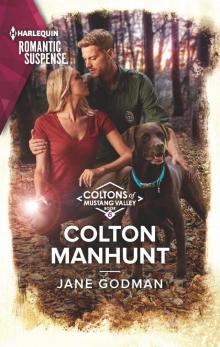 Colton Manhunt
Colton Manhunt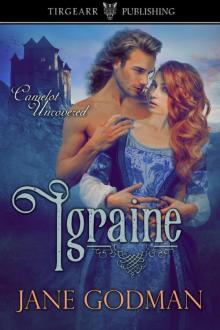 Igraine
Igraine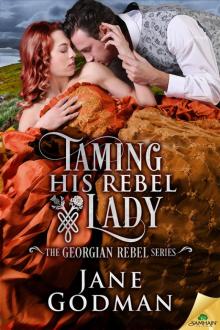 Taming His Rebel Lady
Taming His Rebel Lady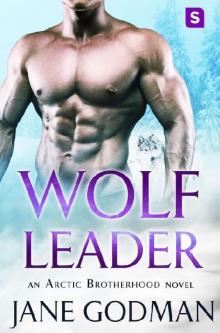 Wolf Leader: A Shifter Romance (Arctic Brotherhood, Book 6)
Wolf Leader: A Shifter Romance (Arctic Brotherhood, Book 6)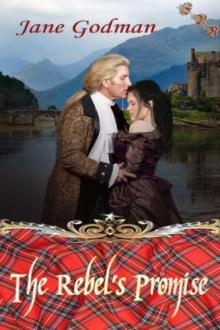 The Rebel's Promise
The Rebel's Promise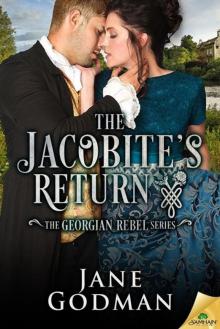 The Jacobite's Return (The Georgian Rebel Series)
The Jacobite's Return (The Georgian Rebel Series)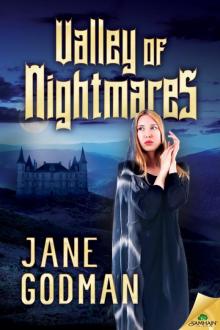 Valley of Nightmares
Valley of Nightmares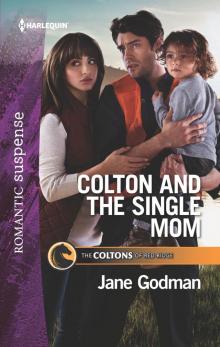 Colton and the Single Mom
Colton and the Single Mom A Kiss for a Highlander
A Kiss for a Highlander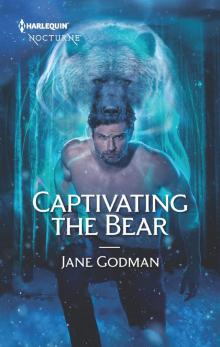 Captivating the Bear
Captivating the Bear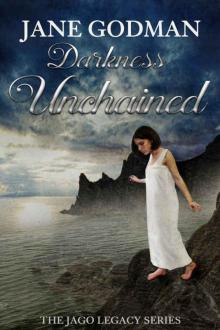 Darkness Unchained
Darkness Unchained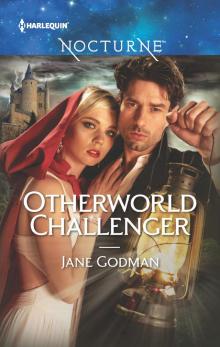 Otherworld Challenger
Otherworld Challenger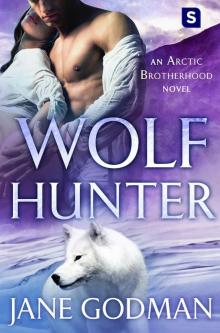 Wolf Hunter
Wolf Hunter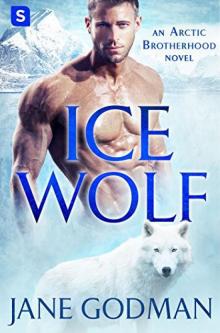 Ice Wolf: A Shifter Romance
Ice Wolf: A Shifter Romance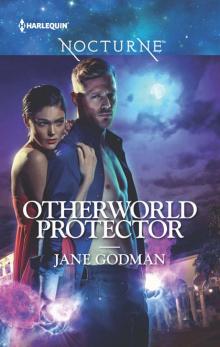 Otherworld Protector
Otherworld Protector Covert Kisses
Covert Kisses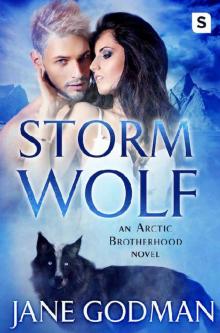 Storm Wolf
Storm Wolf The Soldier's Seduction
The Soldier's Seduction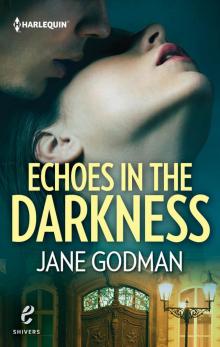 Echoes in the Darkness
Echoes in the Darkness